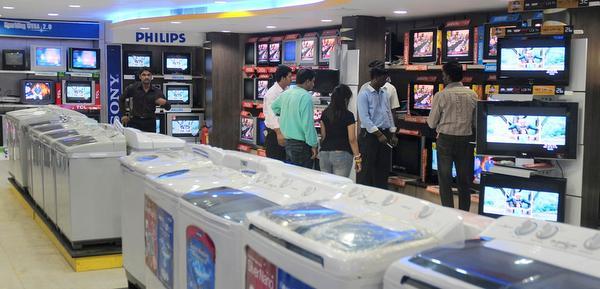GST will be a game-changer for the sector
The Hindu Business Line
By PURVITA CHATTERJEE
January 24

Mumbai, January 24: FMCG companies are pinning their hopes on GST and lower corporate taxes in the forthcoming Budget. The third quarter is expected to be muted for most of the FMCG majors post demonetisation, but if the Budget makes some key announcements regarding GST to streamline taxes, it could prove to be a bonanza for the industry.
K Ulhas Kamath, Joint MD, Jyothy Labs, said, “While GST would be the main one for FMCG companies, there should be one agency to administer it and not both the Central and State government. We pay excise duties to the Centre and sales tax and VAT to the State government but with GST, we would like one agency for assessment.
“Companies with a sales turnover of Rs. 1.5 crore should go to the State government, while those above it should come under the Centre.
“Besides GST would also bring about a level-playing field with the unorganised players who are almost 25 per cent of the FMCG industry. Our costs are going up and in that respect corporate tax can come down from 30 per cent to 25 per cent as globally these rates are much lower compared to India.’’
GST will also determine the location of the future factories and seamless inter-State trade for FMCG players.
Sumit Shah, Executive Director, Madhu Jayanti, said: “For FMCG companies, GST will be the biggest game changer as it will determine where to build factories and make inter-State trade seamless. With central sales tax, VAT and sales tax going out, there would be a cleaner tax system in place with GST.
“Besides we are also looking forward to lower corporate tax rates since if the slab for companies comes down, the government will get better higher compliance rates. Demonetisation has already led to better compliance from companies and lower tax rates will help lead to even higher compliance.’’
Infrastructure projects
Development of infrastructure projects will also lead to employment, and thereby, spur demand for the FMCG industry.
Vivek Karve, Chief Financial Officer, Marico, said: “While GST being a value added tax will have a cascading effect, the government needs to spur consumer demand.
“The government itself should fund infrastructure projects instead of banks which are wary of NPAs and lending to companies with weak balance sheet. Infrastructure projects will generate employment and that in turn will lead to consumer spending which will help the FMCG industry.’’
Besides the popularity and growth of ayurveda-based products with the success of Baba Ramdev’s Patanjali brand has also lead to many FMCG companies entering the segment lately.
Pradeep Cholayil, MD & CEO, Cholayil Medimix, said: “It will be good if there is a specific boost to the ayush/natural ingredients manufacturing akin to tax holidays that are extended in some of the manufacturing sector.
“Given the renewed interest in the ayurvedic health-care space, the Finance Minister may also look at providing a broad-based regulator for the space, in the line of FSSAI for the food products. This will go a long way in preventing unscrupulous and non-serious players misusing the Ayush name for quick gains in the market.
“It will also encourage the existing players who have made handsome investments over the years into developing products with a significant R&D spend.’’